
The Institute’s Journey to Climate Neutrality
The Institute’s mission is to inspire environmental stewardship through transformative experiences in nature. Recognizing climate change as the greatest threat to the environment and human communities, we are committed to addressing this challenge. In 2020, our Board of Directors approved “Conservation in Practice,” a bold goal to achieve climate neutrality by 2030. The aim is to align our operations with our conservation values while inspiring others to reduce their own carbon footprints. This initiative not only tackles our own environmental impact but also hopefully serves as a model for other organizations and individuals.
Our strategy to achieve climate neutrality focuses on two key areas. First, we aim to reduce or eliminate fossil fuel consumption across our operations, particularly in transportation, heating, and electricity usage. Second, we are offsetting unavoidable emissions by purchasing carbon credits that fund projects to reduce or capture greenhouse gasses. Together, these efforts form the core of our climate action plan.
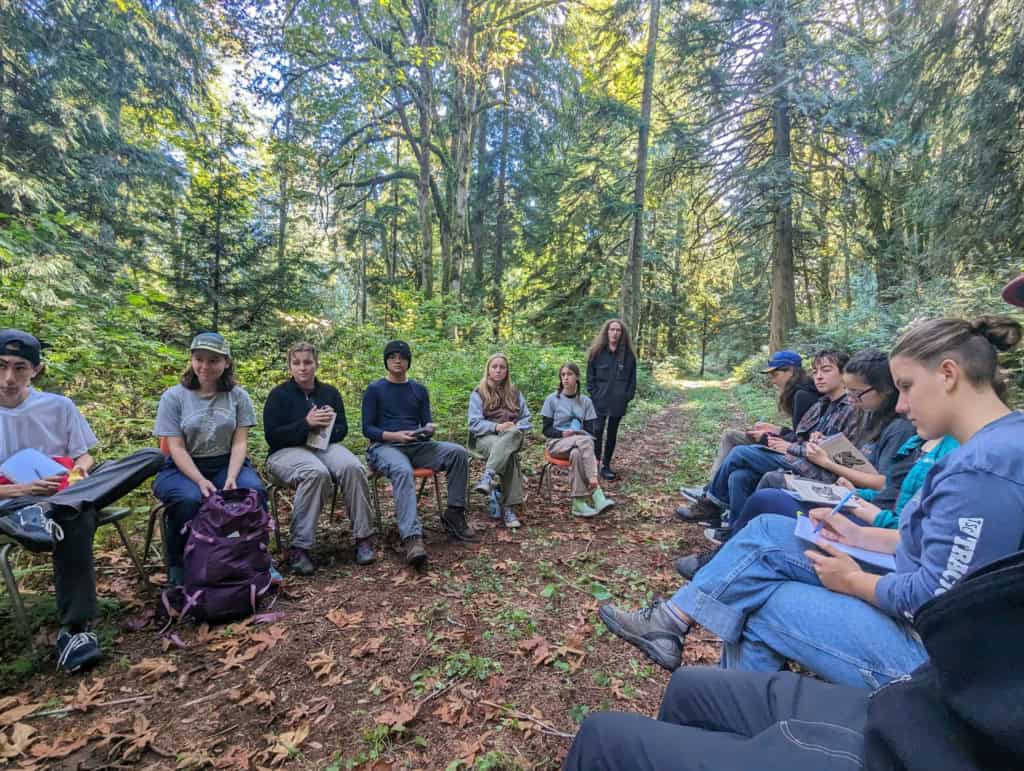
Of course, the Institute also uses the tools of education as an approach towards addressing climate change. For example, Youth Leadership Adventures groups learn about climate science and local impacts of a warming planet, and we facilitate student engagement in local stewardship through planning and implementing an action project in their communities through the Youth for the Environment and People! (YEP!) program.
To better understand our carbon footprint, we partnered with the Peak Sustainability Group. Their comprehensive audit analyzed transportation by participants and staff, as well as energy usage across Institute-owned and leased buildings. The audit revealed that while the Environmental Learning Center consumes the most electricity, its power comes from Seattle City Light’s Upper Skagit River Hydroelectric Project, which is carbon-neutral. However, transportation-related emissions from participant travel to the Learning Center contribute almost half (45%) of our total emissions, and staff commuting accounts for another 37%.
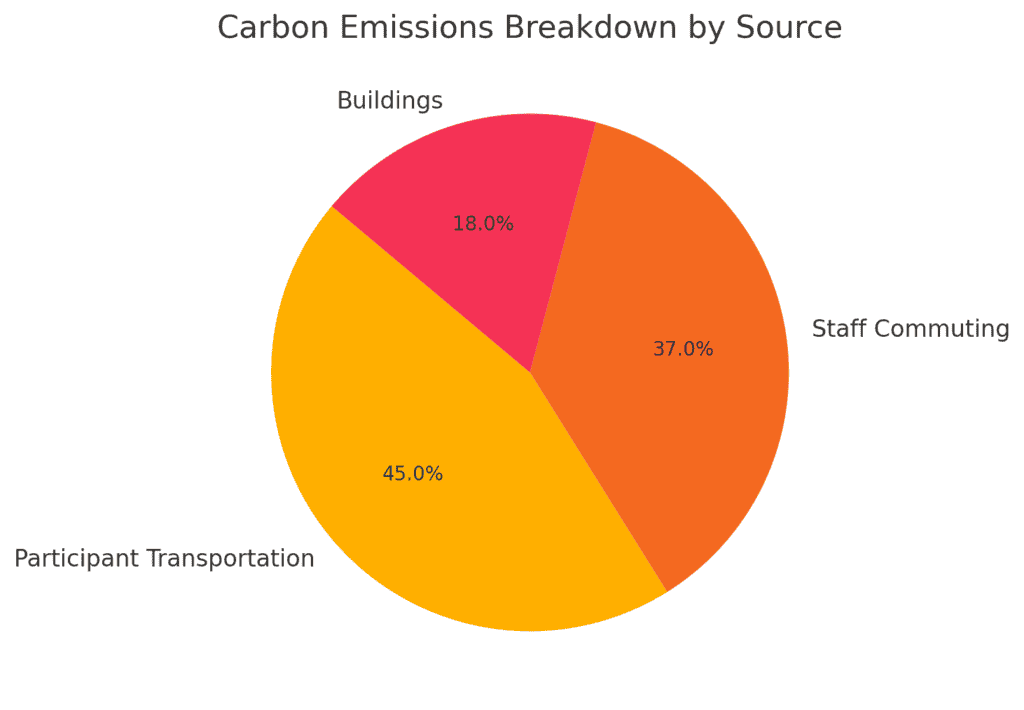
Addressing transportation emissions is a top priority in our efforts to reduce our carbon footprint. We are encouraging staff and participants to carpool whenever possible, and advocating for EV-charging stations at the Learning Center. We’re researching solar energy options and energy efficiency upgrades for staff housing. Additionally, we offer paid service hours for staff to volunteer for environmental stewardship activities and other activities with local nonprofits and schools.
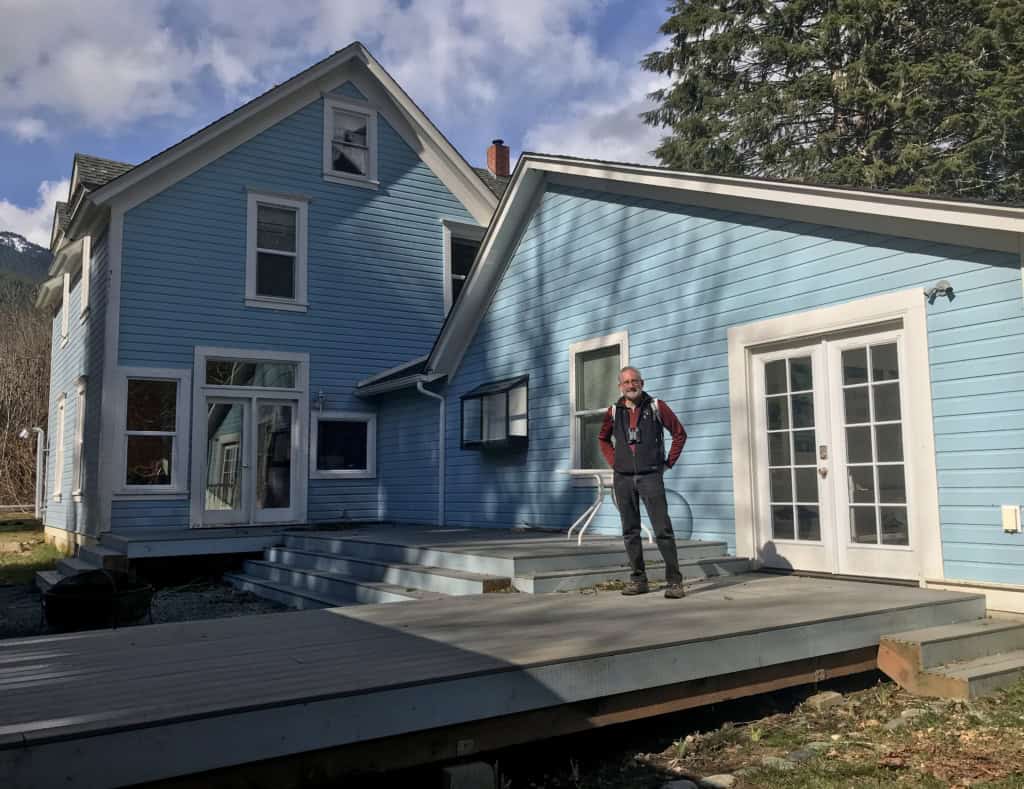
Beyond actions and advocacy, we have undertaken several practical projects to reduce our energy consumption. In 2023, we replaced an old oil furnace in our Marblemount staff housing with a new high-efficiency electric heating system. We also improved insulation throughout the property, including cellulose insulation in the walls of the ADU and upgrades to the attic of the main house. These changes reduce energy waste, bringing us closer to our climate goals.
Looking ahead, we are continually exploring infrastructure upgrades with our partners at the Environmental Learning Center, which could include replacing the centralized boiler system with a decentralized one, upgrading hot water tanks and the kitchen’s dishwashing area, and installing a new composter system. These improvements will not only reduce emissions but also offer educational opportunities for participants on sustainable living practices.
While we work to reduce emissions, we are also investing in carbon credits to mitigate the impact of emissions we cannot directly control. Carbon credits, also known as carbon offsets, are a market-based mechanism designed to reduce greenhouse gas emissions and combat climate change. They work by allowing individuals, companies and governments to invest in projects that either reduce or capture an equivalent amount of greenhouse gases (GHGs) to offset their own emissions.
We understand that carbon offsets is an emerging field with oversight and evaluation continually evolving. We followed the recommendations of Peak Sustainability Group, who aided in vetting reliable programs and projects. We decided to invest with the well-regarded Bonneville Environmental Foundation (BEF), based in Portland, Oregon. This organization offers a diverse portfolio of carbon offset projects worldwide, ranging from reclaiming refrigerant gasses in Georgia to renewable energy generation in India and Uruguay.

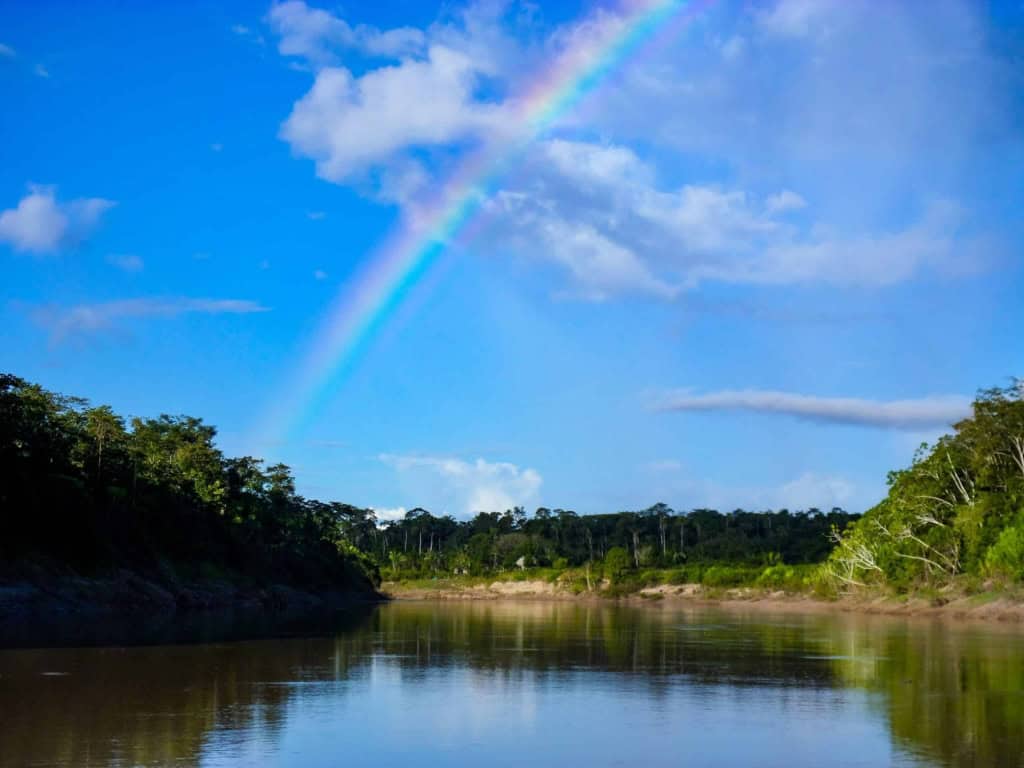 One notable project, the Envira Amazonia Project in Brazil, protects 200,000 hectares of tropical rainforest, preserving biodiversity and ecosystem services that benefit local communities.
One notable project, the Envira Amazonia Project in Brazil, protects 200,000 hectares of tropical rainforest, preserving biodiversity and ecosystem services that benefit local communities.
Another project, UPM Blandin, practices Smart Forestry on 187,000 acres in northern Minnesota, reducing harvest impacts while maintaining biodiversity.
BEF also invests in the Parque Eolico Maldonado wind farm, located in the Southeast region of Uruguay. This wind farm generates energy that is supplied to the national grid of Uruguay and produces, on average, annual emission reductions of 118,585 tons of CO2.
In the future, we are eager to work with Bellingham-based Kulshan Carbon Trust.
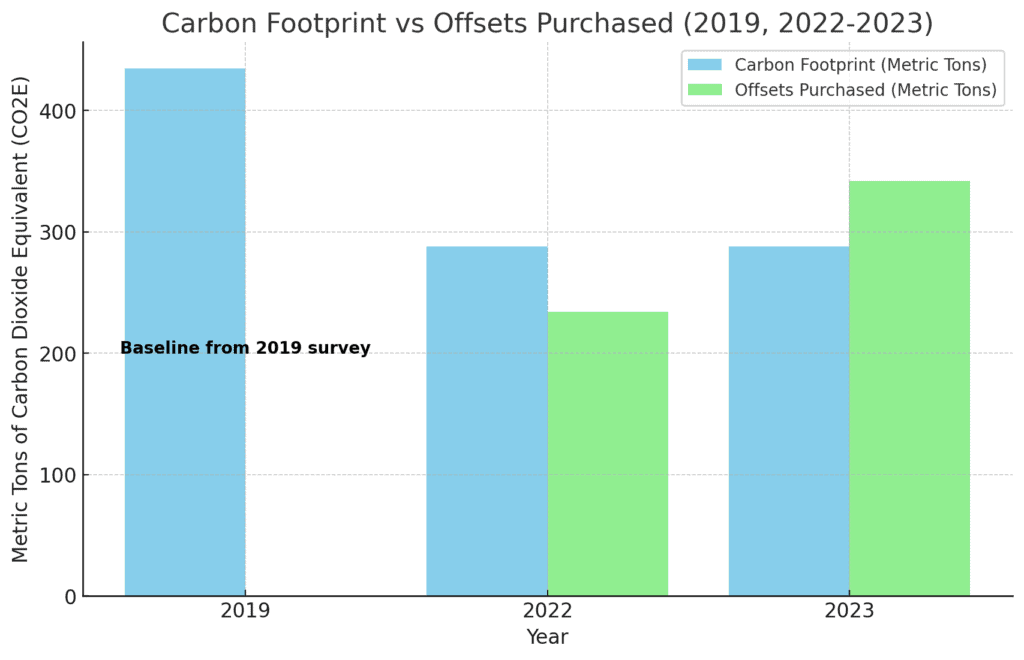
North Cascades Institute’s 2022 carbon footprint was estimated to be 288 metric tons of carbon dioxide equivalent (CO2E) and we purchased 234 carbon offsets, equivalent to the reduction of 515,882 pounds of CO2E or 620,274 vehicle-miles traveled. In 2023, we purchased 342 carbon offsets, equivalent to the reduction of 753,980 of carbon dioxide equivalent (CO2E) or 906,552 vehicle-miles traveled.
We will continue to invest in BEF projects in 2025 (to offset 2024’s carbon footprint) as well as make progress on energy efficiency upgrades at our Upper Skagit facilities. In 2026 we will conduct an updated carbon footprint study to track our progress towards lowering our impact.
While there is still more we’d like to do to directly reduce our emissions, with the help of carbon offsets we have reached our strategic goal of achieving climate neutrality.We hope that in this journey we both minimize our environmental impact and also inspire others to take meaningful steps toward sustainability!
Thank you to the supporters of the Saul Weisberg Catalyst Fund. The board allocated $35,000 of seed funding from this endowment in 2022 and 2023 to further our “Conservation in Practice” strategic goal, including collaborating with Peak Sustainability Group. We’re also grateful for current and former Board members Dunham Gooding, Steve Hollenhorst, George Sanders and Zimmie Caner for working with our Finance Director Jason Ruvelson and Communications Manager Christian Martin to work towards this important strategic goal.


Please identify the location of this set of mountains at the beginning of the Climate Neutrality article.
Thank you.